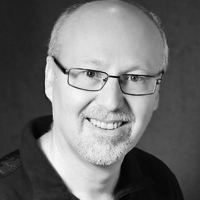Question
What characteristics identify patients as ideal candidates for Middle Ear Implants versus conventional hearing aids?
Answer
In order to be fit with a MEI (or a binaural fitting), one requires a purely sensori-neural hearing loss. Since MEIs are better at generating mid- and high-frequency gain than low-frequency gain, the optimal hearing loss should be sloping. Many MEIs can be digitally programmed or are in fact digital. With the extra control that these technologies afford, other sensori-neural configurations can be fit. I would doubt if any new hearing aid users would be MEI candidates. Although the various surgeries are not complicated, they can be lengthy (up to 3 hours) and like any surgery, can be traumatic. A MEI candidate is therefore one who has tried conventional hearing aids and was unsuccessful either because (i) they were not able to obtain as much high-freuency amplification as required, or because (ii) the occlusion effect (Vagal response) could not be resolved to the satisfaction of the patient. While the cosmetic issue is important, I am not convinced that this should be the primary deciding factor, given that CIC hearing aids can be made quite small with newer technology.
Incidentally, there will be a panel session, chaired by myself and Dr. Jon Spindel, at the next AAA meeting in San Diego (Thrusday AM). In addition, part of the August 2001 issue of Hearing Journal will be dedicated to this topic, with myself and Jon as co-editors.
BIO:
Marshall Chasin, M.Sc., is adjunct professor in Experimental Acoustic Phonetics at the University of Toronto and in Audiology at the University of Western Ontario. He has published extensively and has spoken internationally about middle ear implants, bone anchored hearing aids, and prevention of hearing loss for musicians. Publications include three books (Musicians and the Prevention of Hearing Loss (1996), CIC Handbook (edited, 1997), and Noise Handbook Primer (1999)), and the 1997 monograph,
''Implantable Hearing Aids'' (Trends in Amplification, September 1997).

